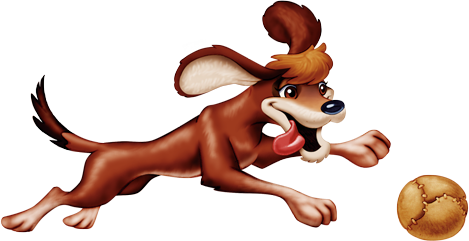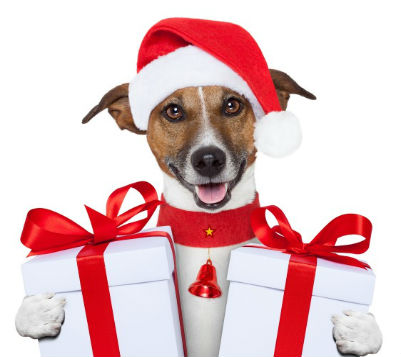Is This Toy a Pet Safe Gift for My Pet?
This holiday season, American pet owners will spend millions on pet gifts for their four-legged family members. We love including our pets in our holiday traditions, and we know your dogs and cats deserve to be spoiled too. However, it’s our responsibility as pet owners to make sure these gifts are completely safe.
Never assume a pet product is safe simply because it’s on a store shelf or manufactured by a popular company. Use caution and remember these tips while shopping for your pets this holiday season.
Deceptive Bargain Pet Gifts
Before you grab that cheap toy or sweater while making your last-minute gift runs, remember: it won’t be a steal if it leads to sky-high vet bills. Some toys and treats have questionable parts, ingredients or side effects that just haven’t led to a recall yet. Others pose serious safety risks unless you invest in high-quality products, supervise your pets’ playtime, and inspect the products regularly.
For example, many adorable holiday costumes have flammable materials, tight and restrictive designs, or small parts that could choke your dog. Cheaply made and poorly assembled pet furniture is also a household hazard. Make sure your gingerbread dog house or brand new cat condo is sturdy and secured in place before introducing it to your curious pets.
Risky Toys for Dogs and Cats
It’s also important to supervise your pets and inspect their toys carefully in between use, so you can seek medical attention if they swallow big pieces and take the toys away when they become too small or damaged. For example, fake mice and other cat toys often have plastic eyes, feathers, and other small parts that are no match for a cat’s teeth and claws. Remove these pieces before they can be ingested. Chew toys for dogs may also cause intestinal blockage or damage. Avoid non-edible bones unless you can make sure your dogs don’t ingest big chunks or sharp shreds.
Nylabone’s non-edible chew toys are a great example. These popular products have prompted countless visits to veterinary clinics and emergency animal hospitals, because owners don’t always follow the strict safety instructions to prevent their dogs from ingesting large pieces. That’s actually not the biggest risk associated with this popular product, though. We now know that Nylabones – and many other pet products – are unsafe for another reason: bacteria.
Recalled Toys and Treats
In April, the U.S. Food and Drug Administration recalled these chew bones after finding traces of salmonella in the toys (as well as in the waste/stool of dogs who chewed them). Since last winter, the FDA has also recalled the following dog toys and treats for the same reason:
Good ‘n’ Fun Beef hide Chicken Sticks (12″)
Tremenda Sticks pet chews by The Natural Dog Company, Inc.
Turkey Sprinkles and Chicken Sprinkles by Boulder Dog Food Company
Beef Trachea Pet Treat by Buster’s Natural Pet Supply (6″)
Jump Your Bones pet treats
Chicken Vittles dog chews by Barkworthies
The FDA also found salmonella in Blue Kitty Yums, cat treats made by Blue Buffalo.
Other Holiday Risks
Of course, your pets’ seasonal safety concerns aren’t limited to the products made for them. Dogs and cats are also exposed to the gifts under your tree, the candles you light, the decorations you hang, and all the noisy traditions and unfamiliar people that come with the holiday season.
Designate a quiet, private space, such as a closed room or a comfortable crate, to keep your dogs safe and calm during hectic gatherings and preparations. If you have cats, be careful about the constant opening of doors and holiday decorative items such as ribbons, tinsel and other long, string-like objects, which can cause potentially fatal intestinal blockages. And before you and your guests sit down to a festive feast, brush up on toxic table scraps with our guide to people snacks for dogs.
Here’s to a safe and happy holiday for every member of your family!
Other Pet Articles
“The Potential Dangers of Cat Toys ” by Animal Planet – http://www.animalplanet.com/pets/dangers-of-cat-toys/
Animal & Veterinary Recalls Archive, U.S. Food and Drug Administration – http://www.fda.gov/animalveterinary/safetyhealth/recallswithdrawals/

